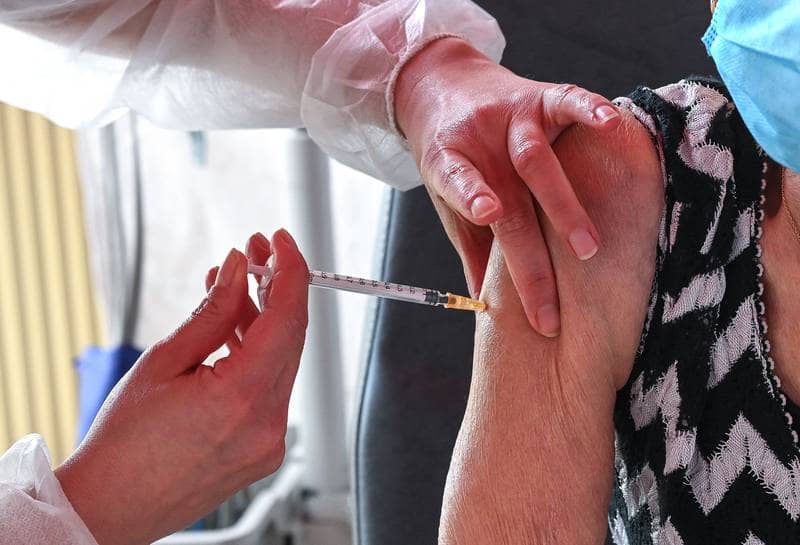Israeli Covid study finds fourth Pfizer vaccine dose shields elderly

A second booster of the Pfizer-BioNTech coronavirus vaccine lowered rates of Covid-19 among the elderly but the protection against infection appeared short-lived, a study in Israel has found.
Protection against infection after receiving the second booster – or fourth dose – dwindled after four weeks, Israeli researchers noted in their study published on Tuesday in The New England Journal of Medicine.
Protection against severe illness did not wane during the six weeks after the dose but researchers said more research was needed to evaluate its longer-term protection. The study of 1.3 million people aged 60 and older analysed data from the Israeli Ministry of Health database from January 10 to March 2, when the Omicron variant was predominant.
"Rates of confirmed SARS-CoV-2 infection and severe Covid-19 were lower after a fourth dose of BNT162b2 vaccine than after only three doses. Protection against confirmed infection appeared short-lived, whereas protection against severe illness did not wane during the study period," the report said.Read More : Israel begins Covid booster shots for 50+ The US Food and Drug Administration is set to convene on Wednesday to discuss the need for additional boosters, a week after America authorised a second booster shot for people aged 50 and older amid a spread of the Omicron subvariant BA.2, Reuters reported.
European health ministers have also urged the bloc's governments to back a fourth dose for people aged 60 and older. In Asia, South Korea started giving out fourth doses of Covid vaccines in February. Singapore said a second booster dose is planned for those aged 80 and older.
Another study from Israel last month showed that older people who received a second booster of the Pfizer-BioNTech vaccine had a 78 per cent lower mortality rate than those who had only one. Israel began offering a second booster in January.
Protection against infection after receiving the second booster – or fourth dose – dwindled after four weeks, Israeli researchers noted in their study published on Tuesday in The New England Journal of Medicine.
Protection against severe illness did not wane during the six weeks after the dose but researchers said more research was needed to evaluate its longer-term protection. The study of 1.3 million people aged 60 and older analysed data from the Israeli Ministry of Health database from January 10 to March 2, when the Omicron variant was predominant.
"Rates of confirmed SARS-CoV-2 infection and severe Covid-19 were lower after a fourth dose of BNT162b2 vaccine than after only three doses. Protection against confirmed infection appeared short-lived, whereas protection against severe illness did not wane during the study period," the report said.
European health ministers have also urged the bloc's governments to back a fourth dose for people aged 60 and older. In Asia, South Korea started giving out fourth doses of Covid vaccines in February. Singapore said a second booster dose is planned for those aged 80 and older.
Another study from Israel last month showed that older people who received a second booster of the Pfizer-BioNTech vaccine had a 78 per cent lower mortality rate than those who had only one. Israel began offering a second booster in January.
Source: www.thenationalnews.com
